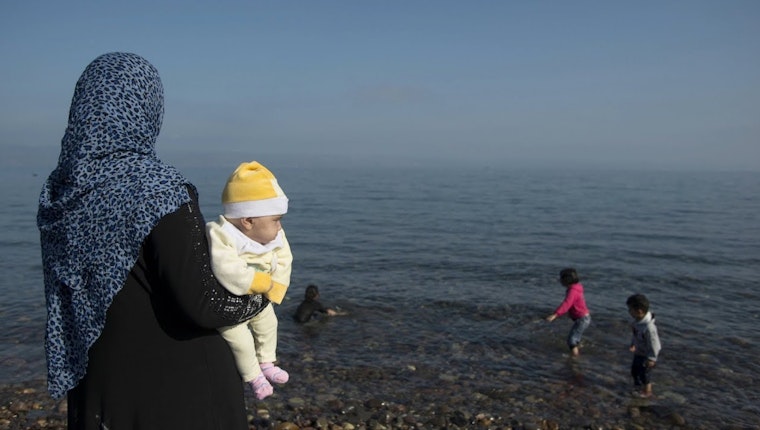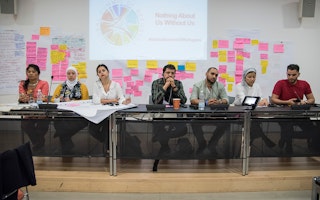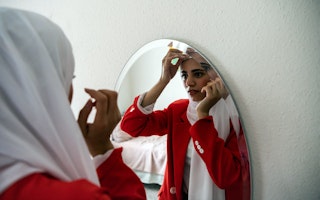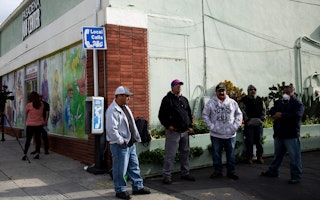On Migrants and Refugees, Global Mayors Show the World What Works
By Maria Teresa Rojas

The Refuge Coffee Company in Clarkston, Georgia, sits by the railway line that runs through the heart of this apparently typical southern American small town, some 20 miles east of Atlanta.
But Refuge, which I was fortunate to visit earlier this year, is not your typical American coffee shop. Its Facebook page, for instance, celebrates the fact that one staff member, Tha, has just received her U.S. citizenship; its annual report notes that last year it hired 10 trainee staff members from Syria, Burma, Ethiopia, the Central African Republic, the Democratic Republic of Congo, and Morocco.
Its vision statement talks about the power of welcome, and establishing “a vibrant resettled refugee community in Clarkston, Georgia, where our new neighbors are embraced and given opportunities to thrive through the business of hospitality through coffee.”
Refuge Coffee, now a vital social hub for the people of Clarkston, is a not-for-profit business, and is one of the ways that the small town has embraced thousands of resettled refugees and migrants from around the world over the past decades. Clarkston is now home to people from more than 40 countries who speak more than 60 languages.
Its mayor, Ted Terry, likes to call the town “the Ellis Island of the South,” in reference to the migrant processing station in New York harbor through which so many future Americans passed in the late 19th and early 20th centuries. The town has enthusiastically welcomed new migrants; its work with resettlement programs have made it a model for other towns and cities across the United States, and helped reverse declining population trends.
This week, Mayor Terry will have an opportunity to tell the world about what Clarkston has learned along the way.
As world leaders gather for their annual UN General Assembly with refugees and migrant policy on the agenda, Terry will be among other mayors and city leaders at attending the 2017 Global Mayors Summit on refugees and migrants, hosted by the City of New York’s mayor, Bill de Blasio. Also attending, along with the mayors of several U.S. cities, thought leaders, business leaders, and civil society representatives are the mayors and officials from Mexico City, Quito (Ecuador), Paris (France), Bristol (England), Altena (Germany), Kampala (Uganda), and Ougadougou (Burkina Faso).
The idea is simple: cities are in the vanguard when it comes to receiving and integrating new migrants, both from their own countries and abroad. So as national governments set out to draw up a new Global Compact on Refugees and a Global Compact on Migrants, it is important that the lessons learned by those on the ground, shaped by real experiences rather than theory or dogma, be heard.
Indeed, last year’s UN declaration on refugees and migrants highlighted the need for cooperation and partnerships with local government, recognizing “the particular needs of local authorities, who are the first receivers of migrants.”
The Open Society Foundations, together with other partners, are supporting the Global Mayors Summit in an effort to make sure that these positive voices from the ground are heard by national policymakers, and to share innovative ideas that are developed at a local level. There will be a focus in particular on partnerships—involving local government and private businesses, civil society, and religious groups mobilizing to ensure that new arrivals get the support they need.
And, at a time when the shadows of xenophobia have darkened in both the United States and Europe, the mayors will have a positive story to tell—about how their new citizens have enriched their cities—economically, culturally, and socially.
Another of the attending mayors, Andreas Hollstein of Altena, in northwest Germany, has stressed the human element of successful integration. In 2015, his small town, recently honored by the German government for its integration efforts, set up an office by the town hall manned by local volunteers to help new arrivals. Local families helped put together boxes of basic household goods and food, and the town paired resettled families with local sponsors to help them navigate their way through the daily business of German life.
With millions of people around the world displaced by conflict, persecution or fleeing poverty, these may seem like small steps. But as governments seek to address a truly global challenge, towns like Altena and Clarkston have something important to show the world.

Until November 2021, Maria Teresa Rojas was director of programs for the Open Society International Migration Initiative.


